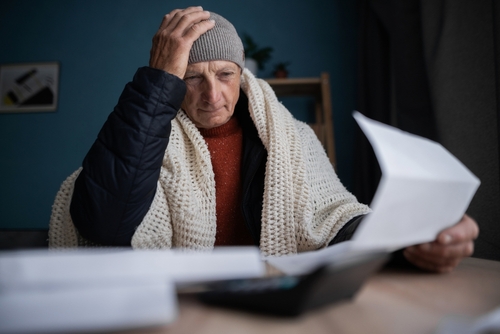Social Security was designed as a financial cushion for American retirees. For decades, it symbolized peace of mind after a lifetime of work. But today, that sense of security is unraveling. A growing number of older Americans believe the system may not survive long enough to benefit them. Their fears are fueled by dire projections, aging demographics, and stalled political reform.
Surveys show trust in the system is slipping—especially among those nearing retirement age. Many are now rethinking their retirement plans entirely, adjusting for the possibility that benefits may be reduced, delayed, or even disappear altogether. What used to be a dependable safety net now feels more like a question mark.
Confidence in the Social Security System Is Declining

Over half of Americans aged 50 and older say they’re not confident they’ll receive full Social Security benefits. That number has grown steadily over the past decade. These worries are not just based on rumors or media hype—they’re rooted in official projections from the Social Security Administration itself.
According to current estimates, the Social Security trust fund is on pace to run out by 2033. If that happens, the system will only be able to pay about 77% of scheduled benefits unless reforms are passed. That could mean significant cuts for millions of retirees who’ve spent decades contributing to the system through payroll taxes.
For older Americans nearing retirement, these numbers feel personal. They’ve worked, saved, and paid into the system. Now, many fear they’ll be left with far less than they were promised.
Millions of Seniors Rely on Social Security to Survive

Social Security isn’t just a supplement for retirees—it’s often their main or only source of income. Around 40% of Americans over age 65 depend on the program for more than half of their monthly income. For many low-income seniors, it’s nearly 100%.
This heavy dependence means any reduction in benefits would be devastating. Seniors could be forced to make impossible decisions—cutting back on medicine, skipping meals, or delaying rent payments. For the oldest and most vulnerable, Social Security is not optional. It’s their lifeline.
And the need for that lifeline is growing. Rising housing costs, higher healthcare bills, and inflation are eating away at fixed incomes. Without reliable Social Security payments, millions more could slip into poverty.
Baby Boomers Are Retiring Into Uncertainty

Baby boomers—those born between 1946 and 1964—are retiring in record numbers. Every day, about 10,000 people in the U.S. turn 65. This surge in retirements is putting immense pressure on the Social Security system, which is funded by current workers.
But with fewer workers supporting more retirees, the math is starting to break down. There are now just 2.7 workers for every retiree, compared to 5.1 in 1960. That shrinking ratio raises serious concerns about the long-term solvency of the program.
Boomers, who spent their careers paying into Social Security, now find themselves on the receiving end of a system that may not deliver. Some are choosing to delay retirement to keep earning and contributing. Others are taking on part-time work, scaling back lifestyles, or leaning on family for support. Retirement, for many, is no longer the stress-free phase they once imagined.
Read More: 9 Money Mistakes That Could Haunt You For Years
Younger Workers Feel Even Less Secure

While older Americans are anxious about receiving benefits, younger generations are even more pessimistic. A large share of Millennials and Gen Z workers believe Social Security won’t be available at all by the time they retire.
This belief is influencing how younger Americans save and plan. Many are aggressively investing in retirement accounts like 401(k)s and IRAs. But not everyone has the financial means to do that—especially with rising rent, student loans, and childcare costs.
For younger people, the idea of retiring at 65 feels increasingly out of reach. They’re told to prepare for longer working years and smaller safety nets. The American dream of a comfortable retirement is becoming more exclusive—and more elusive.
Political Stalemates Threaten the System’s Future

Everyone agrees that Social Security needs reform, but Congress can’t seem to act. Year after year, lawmakers acknowledge the looming funding shortfall. Yet real solutions remain stalled in political gridlock.
Several policy options exist: raising the retirement age, increasing payroll taxes, removing the income cap on taxed wages, or changing benefit formulas. But none are easy to pass. Each option angers one group or another. So Congress kicks the can down the road—again and again.
As lawmakers stall, trust continues to erode. Older Americans, especially those close to retirement, feel abandoned. They’re left wondering whether their leaders will act in time or let the system slide into crisis.
The System Might Not Collapse, But Changes Are Coming

Despite widespread fear, most experts agree Social Security will not simply vanish. Even if the trust fund is exhausted, payroll taxes will still bring in enough money to cover a large portion of benefits. The system will continue—just at a lower capacity.
Still, a 20-25% cut in benefits would be a massive blow to retirees. That’s why many believe change is inevitable. The sooner action is taken, the less painful the fix will be. But without leadership and bipartisan will, retirees are left preparing for the worst-case scenario.
Some potential reforms, like lifting the payroll tax cap, could extend the life of the program by decades. Others, like adjusting benefit formulas to favor lower-income recipients, could soften the blow for the most vulnerable. But until those changes happen, anxiety remains high.
Retirement Planning Is Now More Complex Than Ever

Planning for retirement used to be relatively straightforward: Work hard, pay into Social Security, and retire around 65. But that formula no longer works for many Americans. Rising uncertainty around Social Security has made retirement planning a far more complex process.
Financial advisors are now encouraging clients to assume reduced benefits in their projections. Many recommend building a retirement plan that doesn’t rely on Social Security at all. That includes increasing personal savings, investing wisely, and creating multiple income streams for later life.
Older adults who once expected Social Security to cover most of their needs are being told to downsize, work longer, or cut back now. The emotional toll of this shift is significant, and it’s reshaping how Americans approach aging and retirement.
Americans Are Taking Financial Survival Into Their Own Hands

In the face of uncertainty, many older Americans are taking matters into their own hands. Some are delaying retirement to boost savings and reduce their dependence on Social Security. Others are pursuing part-time work, freelancing, or monetizing hobbies.
Many are relocating to cheaper states or even moving abroad to countries with lower living costs. Downsizing homes, selling property, or moving in with family are also common strategies for reducing expenses.
This shift isn’t just about money—it’s about control. Americans who once trusted the system are now building backup plans. They’re refusing to gamble their futures on a system they no longer believe in.
The Push for Reform Is Getting Louder

Grassroots movements, advocacy groups, and economists are urging immediate action on Social Security reform. Proposals include increasing the payroll tax rate, removing the income cap on taxable earnings, or adjusting the retirement age.
Some call for more radical changes—like universal basic income for seniors, or privatizing part of the system. Others focus on targeted reforms to protect the most vulnerable, such as increasing benefits for widows or caregivers.
Public pressure is growing. As more Americans face retirement without answers, they’re demanding accountability from lawmakers. Whether Congress listens remains to be seen—but the stakes are rising fast.
Final Thought: A System at a Crossroads

Social Security remains one of the most vital programs in American life. It protects millions from poverty, supports aging populations, and provides dignity in retirement. But right now, it stands at a crossroads.
Older Americans are watching the clock, wondering whether the system they helped build will still be there for them. Their fears are valid. Without urgent reform, Social Security may not meet its promises.
The solution isn’t just numbers on a spreadsheet—it’s political will, economic fairness, and moral responsibility. The future of retirement in America depends on whether we treat this moment as a crisis—or a chance to act.
Read More: 19 Common Money Mistakes People Wish They’d Avoided

